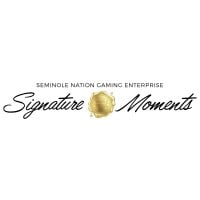
Seminole Nation Gaming Enterprise
Seminole Nation Gaming Enterprise (SNGE) is an entity of the Seminole Nation of Oklahoma. We proudly operate three casinos within the Seminole Nation of Oklahoma territory, Seminole Nation Casino, Wewoka Trading Post Casino and River Mist Casino. We offer Class II and Class III games for your gaming pleasure. SNGE is continuously focusing on improving the gaming experience and excitement for our patrons. We welcome friends to visit our facilities where Winning Is FUN!






